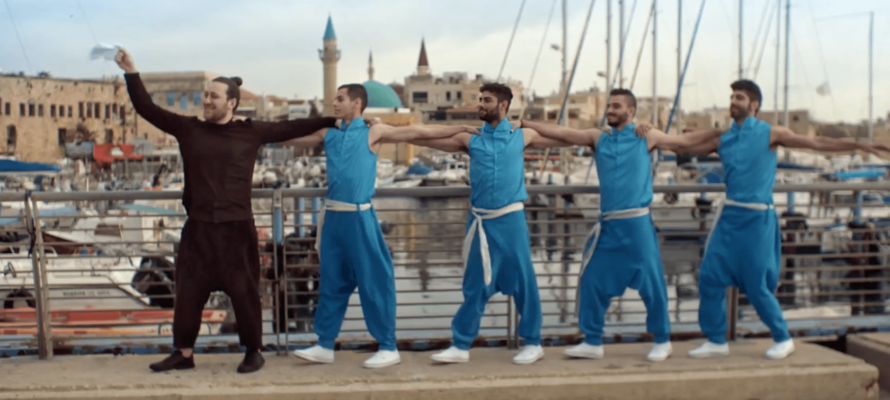Ahead of the contest, held in Tel Aviv after Netta Barzilai’s win in 2018, beautiful Israeli scenery stole the spotlight in short clips featuring the contest hopefuls. This year’s winner was the Netherlands.
By Naama Barak, ISRAEL21c
Let’s be honest – in the Eurovision Song Contest, the music really isn’t the main attraction. That is, unless you’re a fan of pretty strange pop in Icelandic.
Instead, the international competition is all about creativity, diversity, acceptance and completely outlandish fashion.
All these are now out in full force in Israel, which is hosting the event after winning the contest last year (thanks, Netta!).
Eurovision of course comes with a whole host of time-honored traditions, one of them being short video “postcards” filmed around the host country.
The first batch was aired Tuesday night, with each participant’s postcard preceding their live show in the contest’s first semifinals. Filmed by Israeli Public Broadcasting Corporation Kan, which is also handling the Eurovision broadcast in the country, the postcards took the visiting artists up and down the country, showcasing stunning scenery and local attractions.
In Israel’s sunniest and most southern city, Eilat, Cypriot contestant Tamta sang and danced against the backdrop of its beaches, pools and underwater planetarium.
Another beautiful postcard was shot in the Dead Sea, where Conan Osiris from Portugal shimmied away on a salt island in the lowest place on Earth.
Other contestants strutted their stuff in Mikhmoret Beach (Montenegro), Caesarea (Czech Republic), Acre (Georgia) and Jaffa (Australia), among others.
More postcards are set to be released during the second semifinal round on Thursday evening, as well as on Saturday night’s finale – including that of Israeli contestant Kobi Marimi.
Devoted fans can catch a glimpse of Marimi’s postcard, shot in Jerusalem’s Yemin Moshe neighborhood, in the postcard “mashup” video that featured all the contestants to the sounds of Israel’s first Eurovision win – the unpronounceable “A-Ba-Ni-Bi” from 1978.
